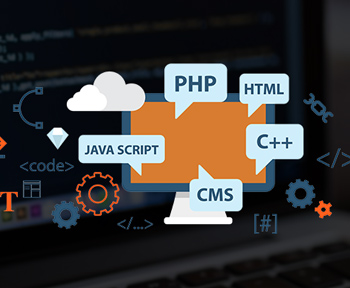What Is PHP?
Now we come to the subject in question! You won’t choose PHP as your programming language if you don’t have a deep knowledge of it! Therefore, we give you a glimpse of it.
PHP is an acronym Hypertext Preprocessor. It was formerly known as the Personal Homepage. PHP was commonly used as an open-source scripting programming language for developing dynamic and static web applications. One important thing to note about PHP is that one can embed it into HTML code.
WHAT DOES PHP SIGNIFY?
PHP stands for Personal Home Page, but currently, it represents the recursive backronym PHP known as Hypertext Preprocessor. The code of PHP may be rooted in HTML code. Otherwise, it may also be utilized in amalgamation with a variety of web template schemes, web frameworks, as well as web content management schemes.
Here’s an example of PHP syntax
<? PHP
echo ‘Hello World’;
?>
Also, a file of PHP can contain a client-side set of programming rules like JavaScript and tags like HTML.
- XML and JavaScript give more improved topics like web services and interactive applications that you will need.
- DBMS (Database management schemes) for database-operated applications.
- HTML is a supplementary advantage when gaining the knowledge of PHP language. Furthermore, you can learn PHP even with no HTML knowledge. On the other hand, it is recommended that you at least know the primary aspect of HTML.
WHAT ARE THE DIFFERENCES BETWEEN PROGRAMMING LANGUAGE AND SCRIPTING LANGUAGE?
The programming language has the entire features required to set up complete applications, while scripting language is mostly utilized for routine tasks.
The code of a programming language ought to be merged up before it can be carried out. In the scripting language, the code is typically carried out without compiling.
Programming language does not require to be rotted into other languages. On the other hand, a scripting language is typically rooted in the environments of the software.
Why Is PHP A Better Option For Web Development?
The high rate at which technology is growing calls for quick action. Different techniques of creating a site arise with this rate of technological growth. Great WordPress is showing limitations as well as restrictions. When you aim to build your professional website, you need to consider speed, security, and layout. Owing to that, you need PHP that has all these metrics. Many reviews and research on PHP proved that they got enough comfort from working on it. Some programming languages in the market are complicated.
Here are reasons why you should choose PHP in Web Development
No licensing fees:
PHP is an open-source programming language. You will have easy access to it without unnecessary charges. You can utilize it here and now. And you can control the code as you like.
Clarity and Organization:
PHP is well organized and clear. It is a user-friendly language and the choice of all simplicity. A novice can understand it properly and command its functions.
PHP is just like the C Programming language:
It is easy for those who know the C language to code PHP.
Easy Database Connection:
If you are in e-commerce websites, you will know the importance of a strong database management system, DBMS. Fortunately, PHP possesses an internal module. Owing to that, the whole procedure goes very fast.
Short time-space processing:
PHP can manage time to give you the good result you require. Using a good database management system, you can develop your website speedily.
Performance speed is high:
The PHP Script can execute its duty in a faster mode. This is not so with other traditional programming languages. PHP is designed with high memory management, which optimizes its performance. Additionally, there is the presence of a third-party accelerator which enhances additional functioning.
PHP is effective and efficient:
Use PHP today if you desire to build your web with a programming language that is efficient and real. You will get it better and fast.
PHP is a strong programming language:
Many of the former programming languages give room to security threats. However, PHP is not vulnerable to security threats as it has in-built security features. You can capitalize on that to protect your website.
What Are The Benefits Of Using PHP?
- The most important benefit of integrating PHP in your website development is that it can interact with numerous and diverse database languages, such as MySQL.
- You will have quality support when you are developing your site. PHP is a very simple language to support even a beginner.
- The open-source enables a user to make use of any text editor during coding.
- The coding will be easy and simple, so you will not stress a lot.
- It features a huge community document.
- PHP is flexible, and you can integrate with XML, HTML, JavaScript, and others.
- If you seek to run multiple operations like UNIX, macOS, Windows, and Linux, it is compatible.
- If you use devices like mobiles, laptops, and tablets, even desktop computers, PHP will run on all of them. It is versatile.
- A lot of web hosting servers enable PHP by default compared to other languages like ASP that require IIS. For this reason, PHP (Hypertext Preprocessor) is a cost-effective option.
- It is regularly kept up to date to maintain a track with the most current technology inventions.
What Advantages Does PHP Have Over Other Programming Languages?
Answering this question is not easy! When we compare programming languages, we do so by matching them to things like common purposes and similar features. So PHP is approximately 90% of the website. And it’s by far more popular used than others. It is made with in-built support, and it is easier, to begin with. You can just download or install it. Others are not so, and they are very costly to host. You can host it everywhere, and maintenance is easy.
Furthermore, PHP features in-built support for operating hand in hand in collaboration with MySQL. It does not make PHP unable for you to use it with other DBMS (database management systems). Still, you can make use of PHP with:
- ODBC
- MS SQL Server
- Oracle
- Postgres, etc.
In line with the special attributes of PHP that others don’t have, PHP is cross-platform. It implies that you can set up your application on an integer of diverse operating systems like macOS, Linux, Windows, etc.



